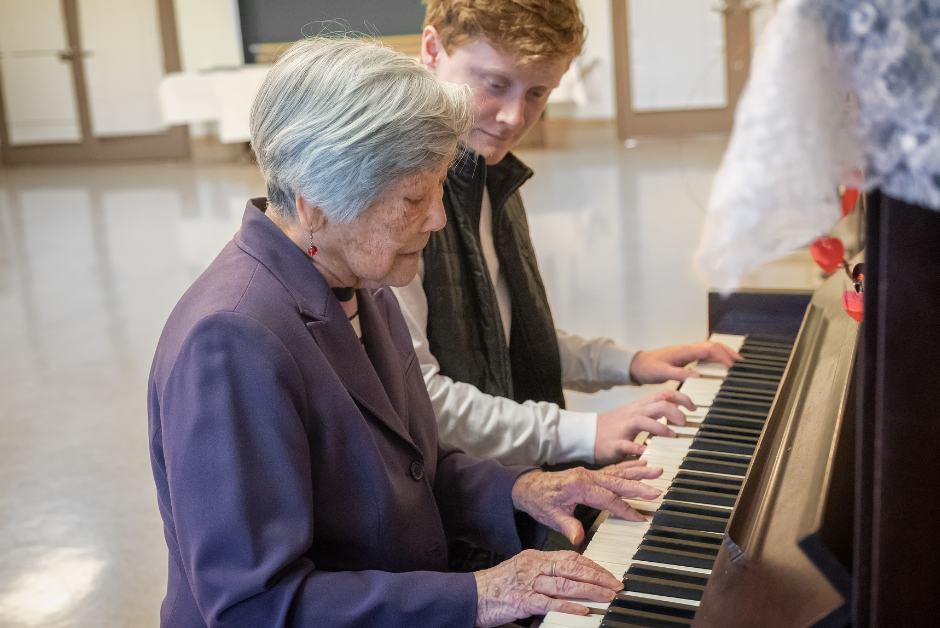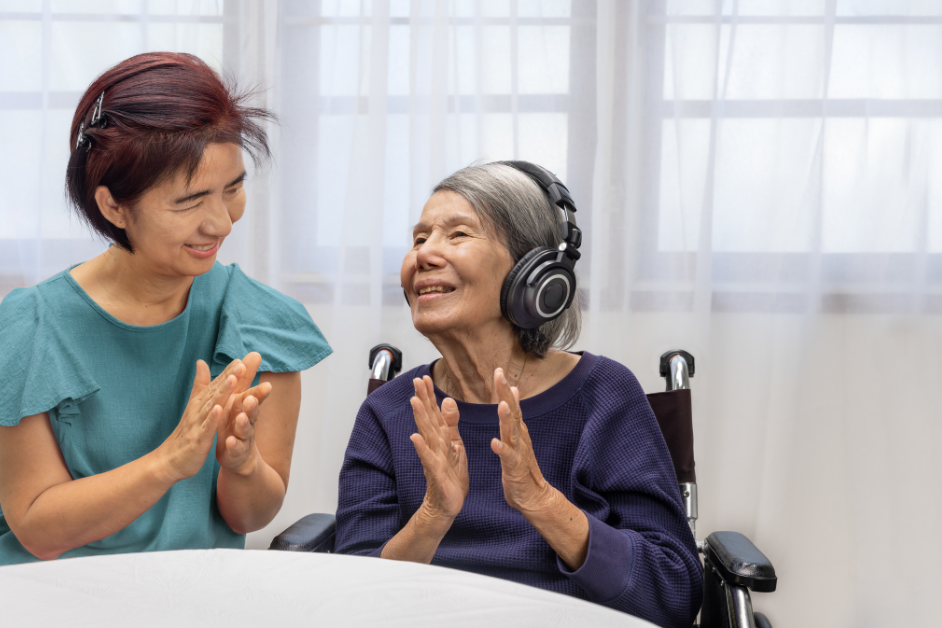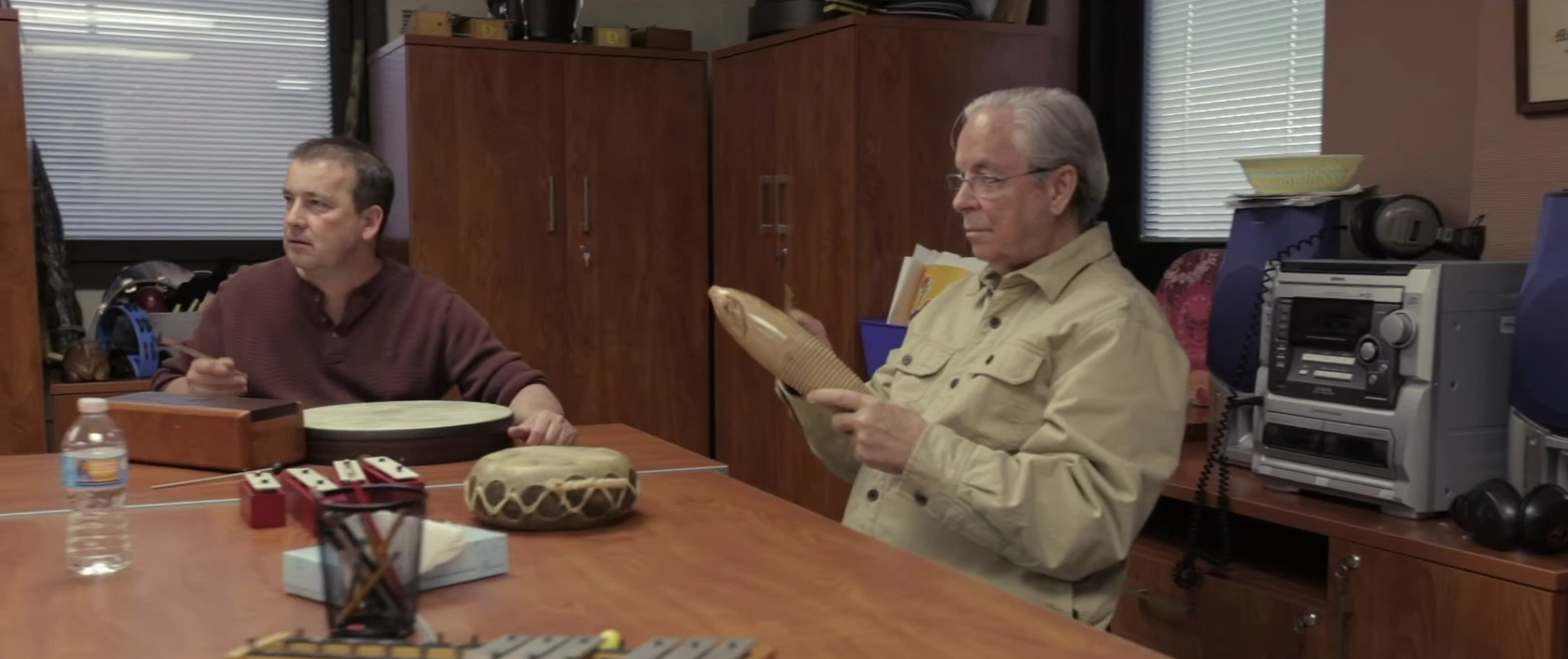How CSU educators are changing lives through music therapy
By Christina Jacobson

When some people hear the words music and therapy, they may not associate them together. One is something we listen to, create, and enjoy. The other can be challenging, eye-opening, and complex. While the two may sound unrelated, many people lean on music as a form of therapy because of the strong calming or motivating effect it provides. Meshing therapy and music together with a science-based approach has since created a field that has changed lives for the better.
According to the Cleveland Clinic, music therapy can improve the quality of life for people struggling with physical illness, developmental disabilities, anxiety, depression, and other disorders.
Colorado State University professors Blythe LaGasse and Jess Rushing recently opened up about their experiences working in the music therapy field on an episode of the Applied podcast.
Whether a person is grappling with physical or cognitive challenges, music therapy has been proven to positively impact many individuals. For some, music simply provides a dance track or something to listen to in the car, but for others it can have incredible healing powers.
Some quip that certain artists have healed them through song, but music therapy can literally help heal mental roadblocks and even change the way our brains function.
So, what exactly is music therapy?
Psychology Today describes music therapy as “a form of treatment that uses music within the therapeutic relationship to help accomplish the patient’s individualized goal.” Music therapy can look different for everyone, whether patients use “listening, reflecting, or creating music under the guidance of a trained music therapist” as their way of therapy.

“Music therapists can expand on what music naturally does to help people process and cope with stress,” LaGasse said. People who are undergoing physical or mental struggles can use music therapy as a way to break down barriers and improve their lives in a natural way.
Music therapy works because it affects the brain and impacts processing by “providing stimulation and structure to the brain, introducing timing, grouping, and synchronization for better organization, and recruits parallel brain systems,” Brain Injury Association of America stated.
“Music therapists can expand on what music naturally does to help people process and cope with stress.”
– Blythe LaGasse
How does music therapy help people?
This form of medicine is unique because it’s completely natural (people have been creating music for thousands of years) yet still has incredible healing powers. Whether it’s helping veterans suffering from PTSD, people on the autism spectrum, stroke victims, people with mental struggles like depression and anxiety, or individuals with traumatic brain injuries, music therapy has many applications.

Veterans have been benefiting from music therapy since World War II while in the recovery process. It can even “help people relearn how to speak or walk by driving neuroplasticity or changes in the brain,” LaGasse shared.
Children on the autism spectrum can benefit from music therapy in a number of ways. In one example, LaGasse spoke about a young boy who had trouble processing sound and relied on his noise cancelling headphones and jacket hood to block out noise around him. After one session, his hood and headphones were off. This opened up the door for processing noise not only in music, but in other areas of life too.
While strokes can be completely debilitating and life altering, there are treatments that assist in the overall recovery process, including music therapy. Overall movement, walking, and speech can be improved. “There’s some research around communication, specifically when someone presents with aphasia and they know what they want to say, but they can’t say it. And it’s not so much a motor problem as a cognitive thing that’s happening in this particular setting. You can often sing when you can’t speak,” Rushing said.

Additionally, music therapy has been scientifically proven to improve mental health by “literally showing anatomical changes in communication centers following extended music therapy intervention or increased dopamine release in areas of the brain related to mood,” Rushing shared.
The benefits of music therapy are not limited to just one type of injury or illness. Every story and experience is a little different but remains positive overall.

The current and future state of music therapy
As time goes on, music therapy continues to grow in popularity and gain support across the world. The American Music Therapy Association (AMTA) noted that “music therapy is promising because state of the art music therapy research in physical rehabilitation, Alzheimer’s disease, and psychoneuroimmunology is documenting the effectiveness of [it].”
Even within the last few years, music therapy has expanded and become more widely supported. Part of this links to COVID-19 because music therapists learned how to work with homebound clients. “The events and skills that we all developed during these pandemic years will shape how future generations learn to do the job of being a music therapist,” shared Mary Jane Landaker, a music therapist.
Interested in learning more?
If you’re looking to learn more about music therapy and the real impact that it can have, check out the second episode of Applied, produced by Colorado State University’s Office of Engagement and Extension.
CSU also offers multiple degree programs that focus on music therapy, available both online and in-person. Both interviewees, Blythe LaGasse and Jess Rushing, assist in teaching the online music therapy programs at CSU.
CSU’s online Music Therapy M.M. is nationally recognized and offers flexibility for all learners. This two-year program allows students to gain expansive knowledge about music therapy, with a focus on neurological science. Additionally, CSU offers an online Ph.D. in Music Therapy which takes the learning experience even further in a three-to-five-year program that gives students knowledge in clinical practice, research, and academic higher education.
If you’re interested in music therapy but don’t know where to start, a BA in music will open the door and create a solid foundation for learners to study music therapy. CSU offers a wide variety of music degrees with an option to concentrate in music therapy.